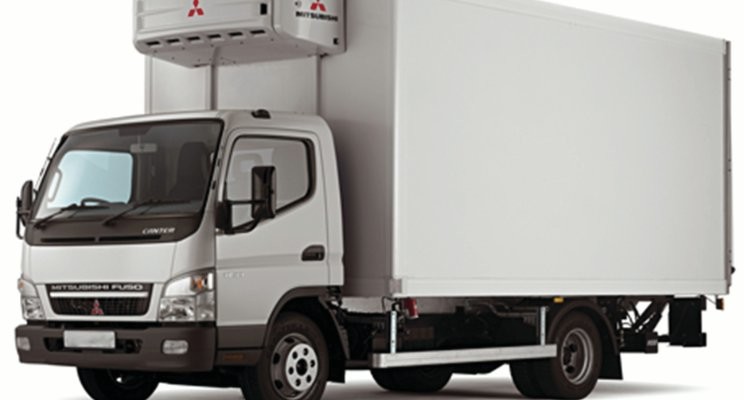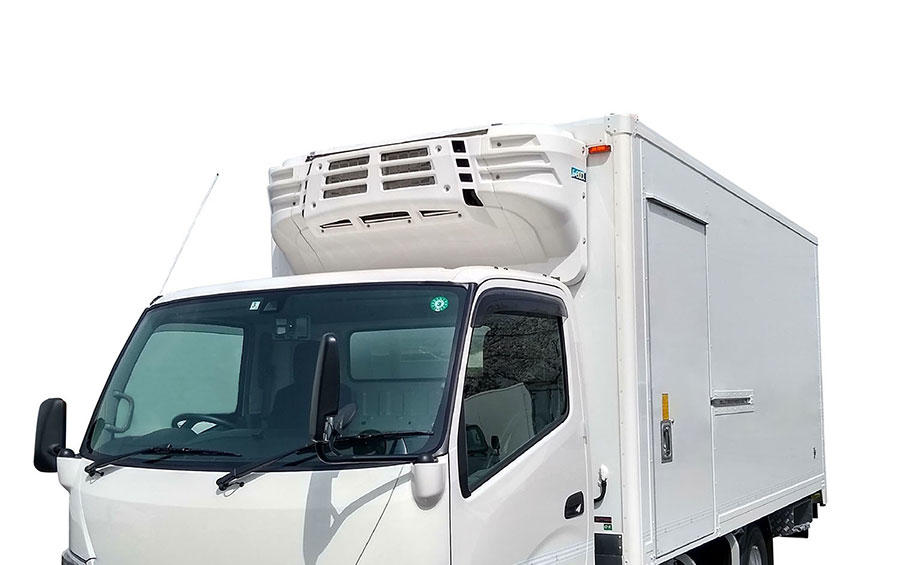Just How Transport Refrigeration Company Provider Ensure Fresh Deliveries
Just How Transport Refrigeration Company Provider Ensure Fresh Deliveries
Blog Article
How Chilled Trucks Run to Ensure Safe and Efficient Shipment of Perishable Product
Cooled vehicles play an essential duty in the supply chain, guaranteeing that disposable products are delivered securely and successfully. Making use of innovative refrigeration modern technologies and durable insulation, these lorries keep precise temperature control, which is vital for preserving the quality of sensitive products.
Overview of Refrigerated Trucks
Refrigerated vehicles, often referred to as reefer trucks, play an important role in the transportation of perishable goods across various industries. These specialized cars are created to keep certain temperature level arrays, ensuring that things such as fresh produce, milk products, meat, and pharmaceuticals continue to be secure for consumption and effective use. The operation of refrigerated vehicles is important in minimizing perishing and expanding the service life of temperature-sensitive items.
Reefer trucks are furnished with protected freight areas that can maintaining reduced temperatures, which can be readjusted according to the kind of goods being carried. The automobiles typically utilize a refrigeration device powered either by the lorry's engine or an independent power source, permitting regular temperature level control throughout transportation.
Along with temperature maintenance, these trucks are typically designed with advanced surveillance systems to track the interior setting, making certain compliance with health and safety policies. Additionally, cooled trucks contribute substantially to the supply chain, making it possible for prompt shipments to dining establishments, sellers, and customers. Their pivotal role emphasizes the value of dependable transport services in today's international market, where freshness is vital.
Key Refrigeration Technologies
Keeping optimal temperature level control in refrigerated vehicles depends on several vital refrigeration innovations that enhance performance and dependability. One of the most common systems is the vapor-compression refrigeration cycle, which makes use of a cooling agent to soak up warmth from the truck's inside, decreasing the temperature level. This procedure includes a compressor, condenser, growth valve, and evaporator, operating in tandem to circulate the cooling agent and keep a consistent environment.
Another noteworthy innovation is using eutectic plates, which store and launch thermal energy. These plates are loaded with a phase-change material that strengthens at a certain temperature level, offering a stable air conditioning resource. This technique not only boosts power effectiveness but additionally minimizes the requirement for continuous power supply throughout transit.
In addition, advanced insulation materials, such as polyurethane foam, considerably improve the thermal efficiency of chilled vehicles, decreasing temperature level fluctuations during packing and discharging. Some modern-day chilled vehicles additionally include telematics systems, permitting real-time surveillance of temperature level and efficiency, hence making certain conformity with safety and security criteria. With each other, these modern technologies make certain the secure transportation of disposable products while enhancing operational efficiency and decreasing power usage.
Temperature Control Mechanisms
Effective temperature level control devices are critical in making certain the honesty of disposable goods during transportation. Cooled trucks utilize innovative modern technologies to preserve consistent temperature level varieties, avoiding spoilage and ensuring item security. Central to these mechanisms is the refrigeration device, which runs utilizing vapor-compression or absorption refrigeration systems. These units are made to cool down the air within the cargo room effectively and maintain the called for temperature level throughout the journey.
In addition, contemporary refrigerated trucks are outfitted with digital thermostats and programmable temperature level monitoring systems. These systems permit real-time tracking of interior temperature levels, providing informs if the temperature level deviates from the established array. This capability important site is crucial for compliance with health and wellness and safety and security policies.
Insulation likewise plays a pivotal function in temperature level control. Top quality insulation products minimize heat exchange, preserving the preferred inner problems. In addition, air movement administration within the cargo location is crafted to make certain consistent temperature level distribution, avoiding hotspots that can compromise product integrity (transport refrigeration).
Best Practices for Loading

First, it is important to pre-cool the vehicle prior to filling. This technique permits the temperature level control system to maintain, developing an excellent setting for subject to spoiling things. Next off, items must be packed in a way that promotes airflow. Avoid overloading and obstructing vents, as this can bring about temperature level variations and hotspots.
Shelving or using pallets can help in arranging products, guaranteeing that heavier items are put at the bottom to prevent squashing lighter items. Additionally, it is crucial to set apart different kinds of products, click site particularly those with differing temperature requirements, to protect against cross-contamination and wasting.
Lastly, safeguarding the tons with straps or webs will prevent motion during transportation, thus reducing the danger of damage and maintaining the stability of temperature-sensitive products. By sticking to these best techniques, drivers can make sure safe and reliable shipment of perishable items while taking full advantage of the performance of their cooled vehicles.
Difficulties and Solutions in Transport
Moving items in cooled vehicles provides several difficulties that can influence the integrity of temperature-sensitive items. One significant problem is temperature changes, which can take place because of devices malfunction or incorrect filling techniques. These fluctuations can cause spoilage, jeopardizing the top quality of disposable products. Additionally, road problems and delays can even more worsen temperature level control issues, especially during prolonged transportation times.
Advanced telemetry can provide real-time temperature level data, notifying drivers to any kind of anomalies. Training personnel on ideal loading and discharging practices can decrease the danger of temperature inconsistencies.
One more key option involves course optimization. Using GPS and website traffic management modern technologies can assist drivers pick the most reliable paths, lowering transit times and decreasing exposure to damaging conditions. Teaming up with trustworthy logistics partners that prioritize chilly chain honesty is likewise essential for making sure that items stay within called for temperature varieties.

Verdict
To conclude, refrigerated vehicles play a crucial function in the safe and effective transport of disposable items. Utilizing advanced refrigeration modern technologies and efficient temperature control systems guarantees that products continue to be within needed temperature varieties. Adhering to ideal methods in filling and path optimization look at this web-site further boosts delivery performance. Dealing with obstacles with cutting-edge options is important for preserving compliance with wellness policies, inevitably protecting the honesty of sensitive items throughout the supply chain.

Report this page